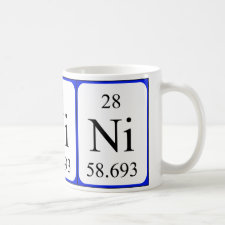
Authors: Rammika M, Darko G, Tshentu Z, Sewry J, Torto N
Article Title: Dimethylglyoxime based ion-imprinted polymer for the determination of Ni(II) ions from aqueous samples.
Publication date: 2011
Journal: Water SA
Volume: 37
Issue: (3)
Page numbers: 321-329.
Alternative URL: http://www.wrc.org.za/Pages/KH_WaterSA.aspx?dt=5&L0=1&L1=4
Abstract: A Ni(II)-dimethylglyoxime ion-imprinted polymer {Ni(II)-DMG IIP} was synthesised by the bulk polymerisation method. The morphology of the Ni(II)-DMG IIP and non-imprinted polymer were observed by scanning electron microscopy and the chemical structures were evaluated by infrared spectroscopy. Selectivity of the Ni(II)-DMG IIP was studied by analysing, using an inductively coupled plasma-optical emission spectrometer, for Ni(II) ions that were spiked with varying concentrations of Co(II), Cu(II), Zn(II), Pd(II), Fe(II), Ca(II), Mg(II), Na(I) and K(I) in aqueous samples. The studies revealed Ni(II) recoveries ranging from 93 to 100% in aqueous solutions with minimal interference from competing ions. Enrichment factors ranged from 2 to 18 with a binding capacity of 120 mu g.g(-1). Co(II) was the only ion found to slightly interfere with the determination of Ni(II). Selectivity studies confirmed that the Ni(II)-DMG IIP had very good selectivity, characterised by %RSD of less than 5%. The limits of detection and quantification were 3x10(-4) mu g.ml(-1) and 9x10(-4) mu g.ml(-1), respectively. The accuracy of the method was validated by analysing a custom solution of certified reference material (SEP-3) and the concentration of Ni(II) obtained was in close agreement with the certified one. The Ni(II)-DMG IIP was successfully employed to trap Ni(II) ions from a matrix of sea, river and sewage water. It is believed that the Ni(II)-DMG IIP has potential to be used as sorbent material for pre-concentration of Ni(II) ions from aqueous solutions by solid-phase extraction
Template and target information: nickel ion, NI(II)
Author keywords: nickel, polymer, dimethylglyoxime, Interference



Join the Society for Molecular Imprinting

New items RSS feed
Sign-up for e-mail updates:
Choose between receiving an occasional newsletter or more frequent e-mail alerts.
Click here to go to the sign-up page.
Is your name elemental or peptidic? Enter your name and find out by clicking either of the buttons below!
Other products you may like:
 MIPdatabase
MIPdatabase









